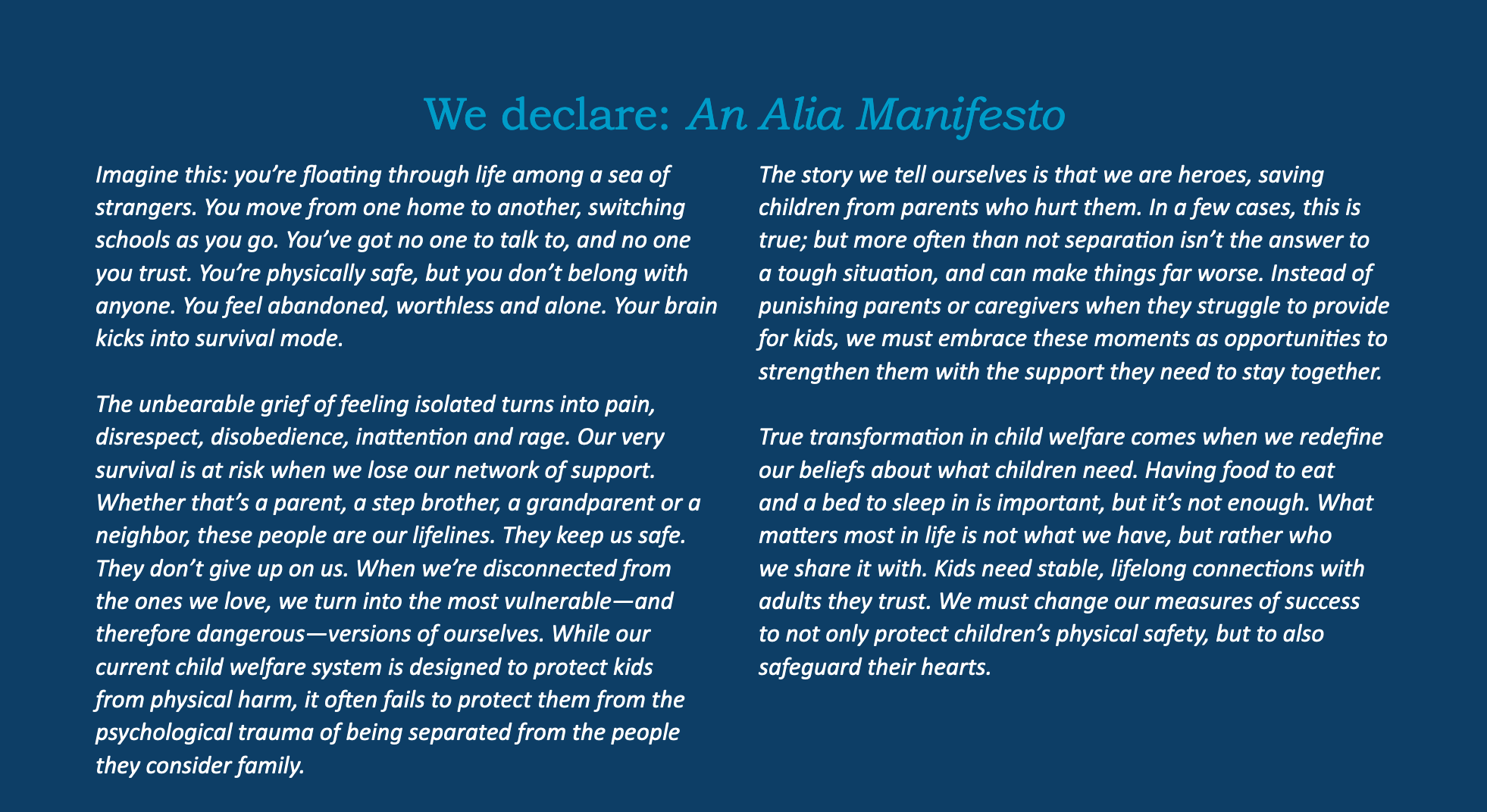What we believe

Children need an uninterrupted sense of belonging and connection to thrive and when separated or removed from their families, even briefly, we do lasting harm to their ability to develop in healthy ways. When a community-driven approach is aligned with preserving family bonds, families can access help when needed and children maintain the connections necessary for lifelong healthy development.
We partner with child welfare systems in communities nationwide to help address each community’s unique challenges by partnering with child welfare leadership and preparing teams to meaningfully engage with communities in co-design. Centered in anti-racism, together we reimagine new ways of work and build a community’s distinctly innovative “UnSystem.”
Alia's Foundational Principles:
- In order to thrive, children need to be raised in permanent families, preferably their own whenever safely possible.
- When separation is necessary, children must be provided an opportunity to heal the grief, loss, and trauma that results from their separation.
- The wellbeing of children is directly related to the wellbeing and stability of their parents. When the workforce has lower levels of compassion fatigue and turnover, children are safer and achieve permanency in greater numbers.
- Leaders play a key role in establishing and ensuring a safe, stable, and healthy organizational culture.
- Individual and organizational resilience can be learned and cultivated.
Current state of child welfare
The costs are high
In the United States, over 600,000 children spend time being raised within the child welfare system each year. In addition to the traumatic impact on each of these children, the cost to society is staggering. According to the Center for Disease Control, the United States spends $124 billion dollars a year on the treatment and care of the children in the foster care system (CDC, 2012).
It’s not uncommon for a child who has been in the foster care system for 5-10 years to have 20-50 foster home placements, each placement representing an unsuccessful match. The direct cost for each of these young people ranges from $150,000-$250,000 per year in placement services, not including the costs of courts, social workers, medications, or healthcare.
Despite its price tag, the current system is remarkably ineffective. In 2012, more than 23,000 youth “aged out” of the foster care system without a permanent family. The social costs of the public assistance, incarceration, and lost wages over the lifetime of the young adults who “age out” are estimated to be $8 billion each year (Annie E. Casey Foundation, 2013). Capturing this, in Alia’s work with social impact analysts, Ecotone Anaytics, we learned that foster care as a financial investment on social return loses anywhere between $3.64 and $9.55 per every dollar spent.
Outdated approach
The current system was founded to keep children--who had already experienced abuse or neglect--physically safe from danger, with less consideration of children’s needs for psychological and emotional protection. We now know that children who are separated from their families suffer from compounded trauma, and without first addressing this grief and loss, children cannot heal. Not only must children be safe, they must also feel safe.
